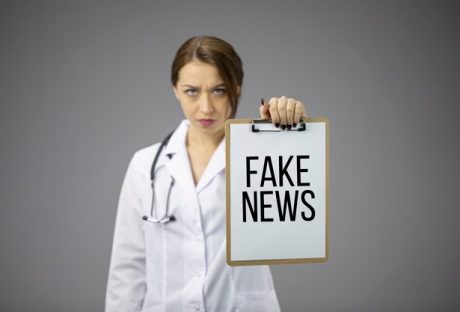Tag: Health News

Causes and Consequences of Fake Health News
The term “Fake News” has been around since the 1800s, but it made quite a resurgence in the last five to ten years. Most stories deemed “fake news” by one side of the political aisle or the other tend to be done so as a defense mechanism against an article that paints an individual or political party in a negative light, with the consequence to society being nothing more than confusion as to what is true and what is not. When health news can no longer be trusted, the consequence to society can be much more severe, and it is becoming a bit of a dangerous trend, fueled by partisanship in politics. Generally, mainstream media outlets like television and print journalism maintain enough journalistic integrity to avoid spreading fake health news, but in the land of social media marketing, the fake stories can run rampant with just the click of a button. The Causes The cut-and-dry cause of fake health news is the almighty dollar. More shares and more likes equal more opportunities to sell advertising, and it’s no secret that the healthcare industry (and pharma, more specifically) spends a lot of money on advertising. With every click meaning potential money, it’s no surprise that lesser “news” services would embellish, or outright lie, to pad their following. A fake article posted on a site called “Natural News” about how the cancer industry was a scam to make money got an astounding 5.4 million hits, and the site’s Facebook page ballooned to more than 3 million followers. Popularity pays, and a general rule of monetization for the social media influencer is they can expect to be paid about $10 for every 1,000 for sponsored content, and it normally maxes out around the 1 million marks, where influencers can make about $1,000 per post, based solely off of advertising that can be made to followers who engage the content. The Consequences As the social media universe continues to grow and grow, so does the potential for the spread of fake news, and it’s an issue that must be focused on, as the consequences are very real, and sometimes fatal. Even the stories that don’t cause direct harm, like one that received over 800,000 engagements claiming that ginger was a better alternative to cancer than chemo, still direct people away from proper care related to their ailments. Especially for patients with terminal illnesses, hope is truly all they have. So other seemingly innocuous stories like someone developing a cure for diabetes in Mexico can give false hope to those who have nothing else. The worst, of course, are those fake news stories that encourage the use of products that have not been approved by the FDA. Though these types of stories generally tend to stay on social media, even the president of the United States was on record encouraging the use of a chemical to fight COVID-19, when said chemical had been shown to increase the chance of heart attack in clinical trials and was not deemed safe for such use. The Cure Again, pertaining to the potential of worldwide growth that social media has, the best way to stymie the spread of fake news is to educate about its dangers so it does not become a generational issue, as many other things based on false information and fear have become in the United States. As far as fixing the spread of fake health news now, many of the prominent social media outlets are flagging posts with false or misleading information. As the issue with fake news is that people believe in it because they like reading things that follow their own, predetermined beliefs, it will be very difficult for the government to regulate what can and can’t be shared on any new social media sites that make a vow to not flag any content… again, a move motivated by money. Read Also: How to Keep up on the Latest News How Cutting Edge Technology is Helping Dubai Improve its Healthcare Services Health Tips For Managing High Cholesterol
READ MOREDetails















